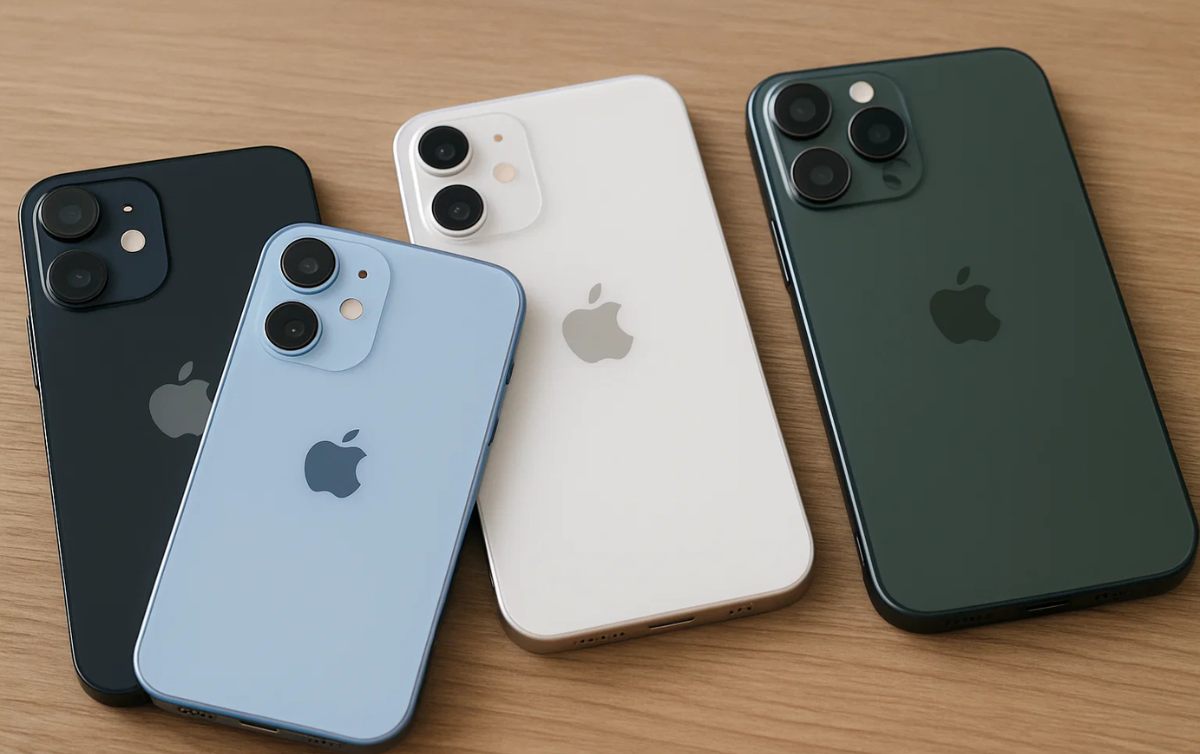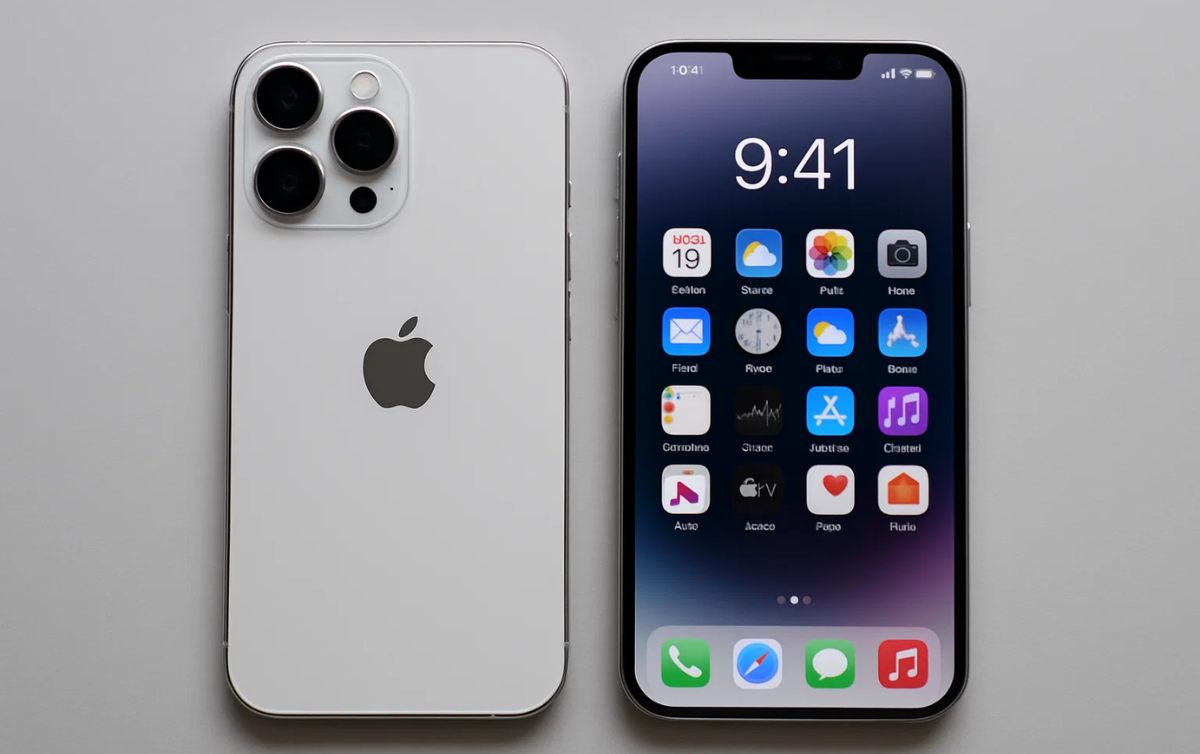In the ever-evolving world of smartphones, iPhones stand out for their sleek design, top-tier performance, and brand value. As new models are released each year, many consumers and resellers are opting for used iPhones as a cost-effective alternative. Businesses and individuals now have a profitable opportunity to buy second hand iPhones in bulk because to this rising demand. Yet, entering the wholesale used smartphone business without any knowledge can be a recipe for disaster. This blog discusses key considerations to keep in mind before purchasing wholesale used iPhones to invest wisely and profitably — particularly when buying from Germany second hand iPhone market.

1.Ensure the Supplier’s Credibility
Making sure the supplier is reliable is the first and most important step in buying old iPhones in bulk. A good supplier will possess transparent business credentials, a professional website, stable contact details, and authentic customer reviews. Whatever traders you are liaising with, locally or internationally — including those from the German second-hand mobile market — ensure that you thoroughly investigate their records. Investigate their qualifications, business licenses, and online presence on sites such as LinkedIn, Trustpilot, or trade directories.
2.Know Grading Standards
Second-hand iPhones are commonly graded based on their physical and functional condition. The following are some standard grading terms:
- Grade A: New condition, nearly no signs of wear, totally functional.
- Grade B: Good condition with minor cosmetic flaws, but perfectly working.
- Grade C: Visible wear and tear, minor functionality problems possible.
Knowledge of these standards guarantees that you’re paying the correct price and are able to meet customer expectations if you’re reselling. Always insist on receiving a complete grading list from your supplier, particularly if you’re purchasing from overseas suppliers who use alternative grading standards.
3.Check IMEI Numbers and iCloud Lock Status
To ensure against legal or usability issues, always insist on viewing the IMEI numbers of the devices before purchase. This figure enables you to check whether the phone is blocked, stolen, or locked to a specific network. Also, ensure that all iPhones are iCloud-unlocked. Active iCloud devices cannot be used unless the original owner deletes their account, which will render the device unusable to a new user. Most trusted second-hand mobile suppliers in Germany offer proof of verification reports and devices that are both iCloud and network unlocked.
4.Know Your Market Demand
Before investing in bulk quantities, determine the demand in your target area. In some regions or customer bases, older models may be preferred due to affordability, while other customers may only accept newer models. Find out which iPhone models (e.g., iPhone 11, iPhone XR, iPhone SE) have the highest demand in your area. Knowing what is in vogue will enable you to choose the proper models and volumes, minimizing the danger of unsold stock.
5.Inquire About Warranty and Return Policy
Wholesale purchasing does not necessarily imply sacrificing after-sales support. Better suppliers — including second-hand mobile phone manufacturers from Germany — typically offer limited warranty (30 to 90 days) on wholesale purchases. This warranty may cover manufacturing faults and hardware malfunctions. Furthermore, be aware of the supplier’s return and replacement terms. Having a mutual agreement in hand safeguards your investment if you receive damaged or dysfunctional units.
6.Ask for Sample Units Before Bulk Purchases
Before placing a large wholesale order, request 1–2 sample units to verify the actual condition of the devices. Check for screen brightness, battery life, camera resolution, and general functionality. This initial investment enables you to verify the supplier’s quality claims and avoid surprises once you receive the entire shipment.
7.Include Shipping, Duties, and Taxes
If you’re sourcing from another country — such as buying from Germany second-hand mobile suppliers — calculate the total cost, including shipping, customs duties, VAT, and any local taxes. These additional charges can significantly impact your profit margins. Always ask your supplier for the shipping method (e.g., DHL, FedEx, freight forwarding) and estimated delivery time to avoid delays and extra costs.
8.Inspect for Battery Health and Accessories
Battery life is a crucial consideration when it comes to used iPhones. Ask if the devices include a minimum battery health percentage (preferably 80% or higher). Some vendors also provide battery replacement services for a small fee. Additionally, inquire about the inclusion of accessories, such as charging cables or earphones. Although many wholesale offers are for phones only, having accessories can increase the resale value.
9.Know the Difference Between Refurbished and Used
It’s also necessary to differentiate between refurbished and used iPhones. Refurbished iPhones are professionally restored and might even come with warranties, whereas used phones are sold without any warranty. Some German second-hand mobile retailers deal in certified refurbished phones, which can be a better option for beginners. Refurbished phones, however, tend to be pricier than regularly used ones, so incorporate that into your pricing plan.
10.Ensure Local Network Compatibility
Regional networks have specific frequencies. Before importing second-hand iPhones, ensure they are compatible with mobile carriers in your country. The majority of newer iPhones are globally unlocked and compatible with multiple LTE bands, but it is still recommended to double-check the model numbers and networks before purchasing.

Conclusion
Purchasing wholesale used iPhones can be a lucrative endeavor if performed judiciously. However, it is crucial to follow these guidelines to avoid any losses. From authenticating the supplier’s credibility to recognizing grading standards, validating IMEI numbers, and determining the total cost, there are several key considerations to be aware of. Whether you’re a reseller hoping to stock your shop or an enterprise wishing to distribute devices, comprehensive due diligence is essential. Markets such as Germany’s second-hand mobile have established a good name for quality and dependability, but every deal still needs to be scrutinized. By implementing these best practices, you can reduce risk, increase return, and develop a sustainable business in the competitive mobile telephone sector.

